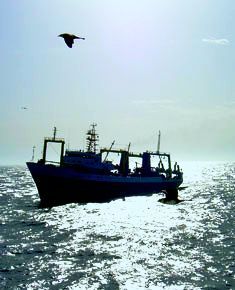Hungary will probably postpone euro adoption from 2008 to 2010 because of high inflation and budget deficits
Published:
26 February 2004 y., Thursday
Hungary will probably postpone euro adoption from 2008 to 2010 because of high inflation and budget deficits, Finance Minister Tibor Draskovics said. The National Bank of Hungary (MNB) has argued for faster adoption, saying it will boost growth.
Draskovics detailed some proposed cuts in state expenditure. Plans include reducing the number of higher civil servants, such as government advisors and state secretaries; the number of state-run foundations; and support for ethnic Hungarians abroad.
January inflation was higher than the Finance Ministry expected, at 6.6% yr/yr and 2.1% month-on-month. It expects annual inflation in 2004 to be near the higher end of its 6%–6.5% target band.
The February budget deficit is anticipated to be about Ft 180 billion (Ђ684 million), boosted by interest payments, Finance Ministry sources said. The estimated February gap would push the two-month figure to Ft 399 billion, or 43% of the full-year target.
Industrial output grew 6.4% in 2003, after a 2.8% increase in 2002, the Central Statistics Office (KSH) said. In December output fell 0.8% month-on-month.
Real wages rose by 9.2% in 2003, as the result of a 14.3% rise in average net wages and twelve-month consumer price inflation of 4.7%, the KSH announced.
The government wants to raise R&D spending to 1.8%–1.9% of GDP by 2006, and to 3% by 2010, Prime Minister Pйter Medgyessy said. Last year the figure was barely above 1%.
The number of operating businesses in Hungary rose 2.6%, to a total of 969,559 in 2003, including not-for-profit and budget-funded businesses, the KSH said.
Šaltinis:
bbj.hu
Copying, publishing, announcing any information from the News.lt portal without written permission of News.lt editorial office is prohibited.
The most popular articles
 The financial crisis is having a serious impact on low-income countries.
more »
The financial crisis is having a serious impact on low-income countries.
more »
 The agreement was welcomed by the EU, which has led efforts to crack down on loose banking practices that caused the financial crisis.
more »
The agreement was welcomed by the EU, which has led efforts to crack down on loose banking practices that caused the financial crisis.
more »
 On 31 March this year, the boards of AB Bank SNORAS and AB “Invalda” approved of the purchase and sales transaction of AB “Invalda” financial group's companies.
more »
On 31 March this year, the boards of AB Bank SNORAS and AB “Invalda” approved of the purchase and sales transaction of AB “Invalda” financial group's companies.
more »
 MEPs will vote on Thursday 2 April on a first reading agreement on the voluntary EU Ecolabel (“EU flower”) system for environment-friendly products to become less costly and bureaucratic to use.
more »
MEPs will vote on Thursday 2 April on a first reading agreement on the voluntary EU Ecolabel (“EU flower”) system for environment-friendly products to become less costly and bureaucratic to use.
more »
 The fourth quarter of 2008 was not so good for the banking industry, and the financial conditions of commercial banks and savings and loans is expected to further deteriorate for the rest of 2009 and the first part of 2010, according to LACE Financial Corp.
more »
The fourth quarter of 2008 was not so good for the banking industry, and the financial conditions of commercial banks and savings and loans is expected to further deteriorate for the rest of 2009 and the first part of 2010, according to LACE Financial Corp.
more »
 MEPs recently gave the green light to a new trade deal between Europe and Caribbean countries.
more »
MEPs recently gave the green light to a new trade deal between Europe and Caribbean countries.
more »
 New VoIP Features Boost Flexibility, Mobility, Cost Savings for Organizations Seeking to Untether Workers.
more »
New VoIP Features Boost Flexibility, Mobility, Cost Savings for Organizations Seeking to Untether Workers.
more »
 According to the revised data, in IV quarter 2008, GDP at current prices made LTL 28578.8 million and against IV quarter 2007 decreased by 2.2 per cent.
more »
According to the revised data, in IV quarter 2008, GDP at current prices made LTL 28578.8 million and against IV quarter 2007 decreased by 2.2 per cent.
more »
 The EP Fisheries Committee rewrote the rules on recreational fishing in its consultative report, adopted Tuesday, on a proposed “control regulation” to ensure compliance with common fisheries policy (CFP) rules.
more »
The EP Fisheries Committee rewrote the rules on recreational fishing in its consultative report, adopted Tuesday, on a proposed “control regulation” to ensure compliance with common fisheries policy (CFP) rules.
more »
 In a measure of the Union’s strong growth prior to the financial crisis, the demand for EU trademark rights has shot up in recent years, creating an unexpected budget surplus.
more »
In a measure of the Union’s strong growth prior to the financial crisis, the demand for EU trademark rights has shot up in recent years, creating an unexpected budget surplus.
more »